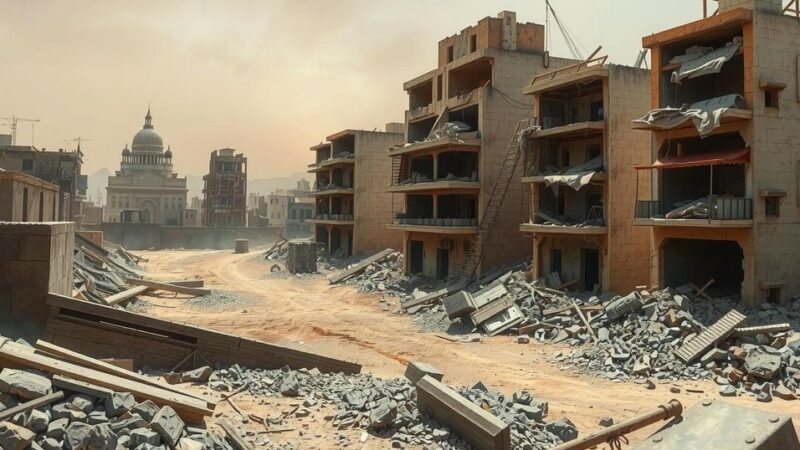Sudan is experiencing a silent genocide resulting in mass killings and over 10 million displaced. Despite the urgent humanitarian crisis, global powers, particularly the U.S. and Israel, remain largely disengaged. The destabilization of Sudan poses significant threats to regional security, necessitating decisive international action to combat the ongoing atrocities and support restoration efforts.
Sudan is currently experiencing a silent genocide characterized by mass killings and ethnic cleansing, resulting in the displacement of over 10 million individuals. Despite the magnitude of these atrocities, global leaders, including the United States and Israel, have largely remained indifferent. The international community’s focus consistently prioritizes conflicts that align with their geopolitical interests, allowing Sudan to suffer unnoticed.
Since April 2023, Sudan has been engulfed in a civil war between the Sudanese Armed Forces and the Rapid Support Forces, a brutal paramilitary group. This conflict has resulted in significant humanitarian crises, with cities being destroyed and entire communities devastated, particularly in the Darfur region, where ethnic genocide has been reported.
In January 2025, the United States officially recognized the genocide committed by the RSF against the non-Arab Masalit community in West Darfur. Humanitarian reports reveal rampant killings, sexual violence, and deliberate targeting of civilians, leading to tens of thousands of deaths and a burgeoning refugee crisis in neighboring countries.
The international response to these atrocities has been surprisingly insufficient. Historically, the United States has played a pivotal role in addressing humanitarian crises, yet it has been distracted by other international conflicts. While condemnation exists, substantial action remains absent, risking dire long-term repercussions for Sudan and regional stability.
The destabilization of Sudan poses a significant threat to global security, with the potential for jihadist networks to proliferate, arms trafficking to occur, and mass migrations to disrupt stable regions. The United States must acknowledge that Sudan’s collapse could destabilize the Horn of Africa and hinder global trade routes.
For Israel, Sudan’s crisis holds dire strategic implications. With Sudan previously signing the Abraham Accords, its decline threatens a critical potential ally in combating extremism. The country’s strategic location bordering the Red Sea adds to its importance for Israeli security.
As Sudan descends further into chaos, the loss of this ally and the rise of extremist factions become increasingly concerning. Such instability threatens neighboring countries, notably Egypt, which is critical to Israeli security.
Sudan’s internal conflict has evolved into a geopolitical issue involving multiple regional actors, particularly the UAE, which has been accused of supporting the RSF. This external involvement complicates the situation, prolonging violence and prolonging the humanitarian crisis.
To effectively respond to Sudan’s crisis, the United States must take a leading role by initiating global action, including diplomatic pressure, support for multilateral peace efforts, and accountability for external influence. Collaboration with Israel, the United Nations, and other regional stakeholders is essential to forge a coalition aimed at addressing ongoing genocide while restoring stability to Sudan.
It is imperative for the U.S. to move beyond mere condemnation and actively engage in mechanisms to prevent further violence. This includes implementing sanctions, deploying international peacekeeping forces, and providing humanitarian assistance to alleviate suffering in the region.
In conclusion, the ongoing genocide in Sudan represents a critical humanitarian crisis that requires urgent international attention. The indifference of major powers, particularly the United States and Israel, not only endangers the lives of millions but also threatens regional stability. The strategic implications for Israeli security necessitate a proactive response, emphasizing the need for global coalitions that could lead to meaningful action and restore peace in Sudan.
Original Source: www.ynetnews.com






